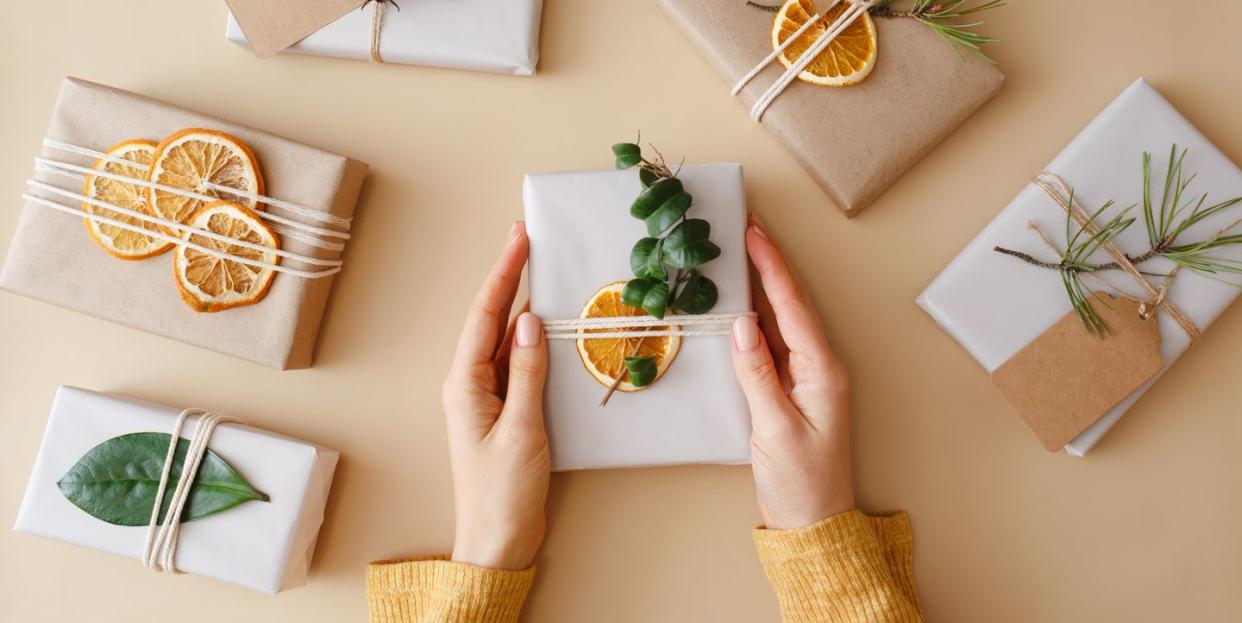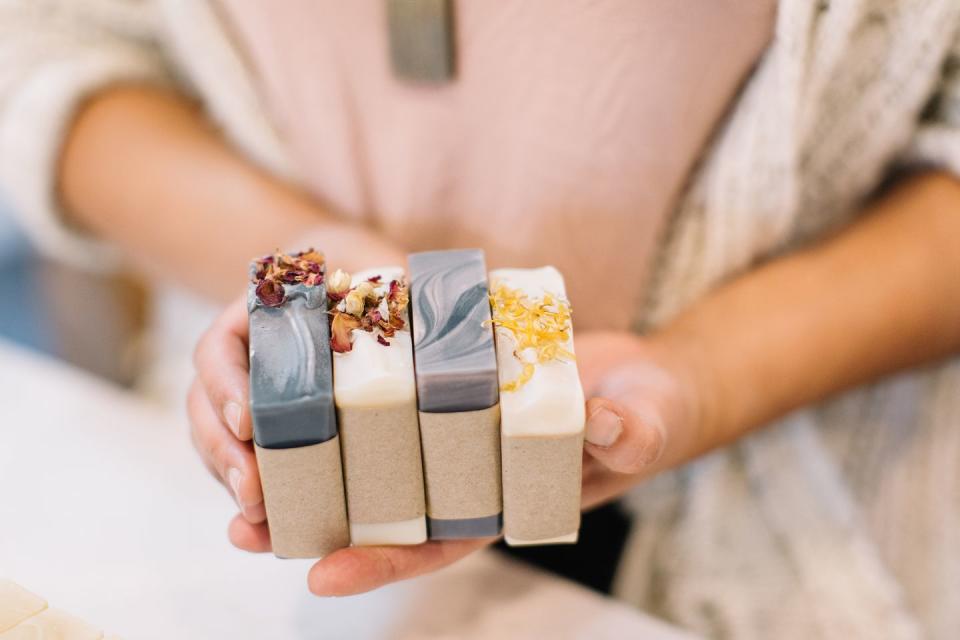There Are Lots of Affordable Ways to Gift Sustainably — An Expert Tells Us How

"Hearst Magazines and Yahoo may earn commission or revenue on some items through these links."
The quest for finding the perfect gift can feel overwhelming. You might spend hours exploring the vast expanse of Amazon or aimlessly wandering store aisles, only to depart with a sense of disappointment. Luckily, you can easily find (or make!) special, one-of-a-kind gifts for the people you care about — it's all a matter of knowing how to gift sustainably.
Sustainable gifting refers to the practice of giving gifts that are environmentally friendly, adhere to social ethics, and promote long-term ecological harmony. This can include giving eco-friendly products that are produced, packaged, and sourced in an environmentally responsible way, with consideration for the product's entire lifecycle.
There are a number of ways that you can give eco-friendly gifts for different recipients in your life. Here are our expert-approved tips on how to gift sustainably.
Understanding sustainable gifting
In an age of heightened environmental awareness, sustainable gifting has emerged as a powerful way to celebrate special occasions while championing a greener future. By embracing sustainable gifting, individuals are also contributing to a more mindful consumer culture.
“I think the biggest plus of sustainable gifting is that you're doubling down on the thoughtfulness quotient that's often missing in our consumer-obsessed society, while also not adding to the swirl of fast-production supply and demand that's harming people and the planet.” says Ashlee Piper, sustainability expert and author of Give A Sh*t: Do Good. Live Better. Save the Planet. “You're giving someone something that's going to have utility in their lives.”
When it comes to tangible objects, a sustainable gift can be an item made from renewable or recycled materials, but it can also be a product made by a fair trade-certified brand that follows ethical production standards. Items with minimal packaging waste that can be reused again and again are also considered sustainable gifts.
Give experiences instead of physical items
Sustainable gifts don't have to be physical objects! Gifting an experience to someone is a creative alternative for those who are trying to cut down on their consumption.
“We have such a rigid idea of what a gift can be — and it's outdated,” Piper says. “I personally like gifts that aren't things, because arguably, most of us have enough stuff."
By gifting someone an experience, you're not only reducing potential waste, but the gift can also be more relevant to the receiver's needs and interests. And it doesn't have to cost a lot, either. "If you're short on money, you can still gift extraordinary experiences. I've gifted a night of babysitting, homemade food, a picnic, a music playlist — the options are only limited to your imagination," says Piper.
Opt for eco-friendly materials
If you're planning to give someone a physical gift, opt for products made from recycled or upcycled materials, organic or sustainable fabrics, or ethically sourced ingredients. Consider alternatives to single-use items, such as reusable water bottles, shopping bags, and bamboo utensils. Piper also suggests shopping for secondhand or vintage items.
“Secondhand and vintage gifts are becoming more destigmatized,” Piper says. “I love receiving and giving secondhand books, art, vintage kitchen stuff, and decor, etc. Gifting items that already exist reduces the burden and resource drain or production and extends the utility of items, preventing them from hitting the landfill.”
Given that Americans spend around $8.3 billion each year on unwanted or unused holiday gifts, Piper says that infusing gifts with more thought and ethical cred helps ensure that an item will be appreciated for years to come.
Support local artisans and fair trade-certified companies
When it comes to sustainable gift-giving, it's also a great idea to support local artisans and brands that are fair trade-certified. In doing so, you’re ensuring that your gifts have a positive impact on both the environment and global communities.

A product with a fair-trade certification indicates that it was made by workers receiving fair wages in safe working conditions. By supporting these initiatives, you're contributing to sustainable economic development and social well-being.
"This is pretty implied by whatever the ethical cred of the item is — if it's fair trade, made by a cooperative, etc, it's gonna be better for the people who made it,” says Piper. “And we vote with our dollars, so if you're buying a new item, ensure it echoes as many sustainability sub-values as are important to you and the recipient.”
Shopping from local artisans and fair trade-certified organizations often means you are purchasing unique and handmade gifts. These items tend to have a story behind them and are crafted with care and attention to detail, usually resulting in a higher quality than their mass-produced counterparts.
DIY and personalize
Tap into your creative side and make personalized gifts with a meaningful touch. Homemade gifts put your thoughtfulness (and crafting skills!) front and center while also minimizing the carbon footprint associated with manufacturing and shipping an item you might buy new in stores or online. Plus, by going the DIY route, your sustainable gift is guaranteed to be one of a kind.
Using inexpensive materials or supplies you already have at home, you can make jewelry, knit a scarf, bake homemade treats, or put together a custom photo gift. Even if the gift itself costs you very little, the time and effort that you put into it will make it absolutely priceless to them.
You Might Also Like

